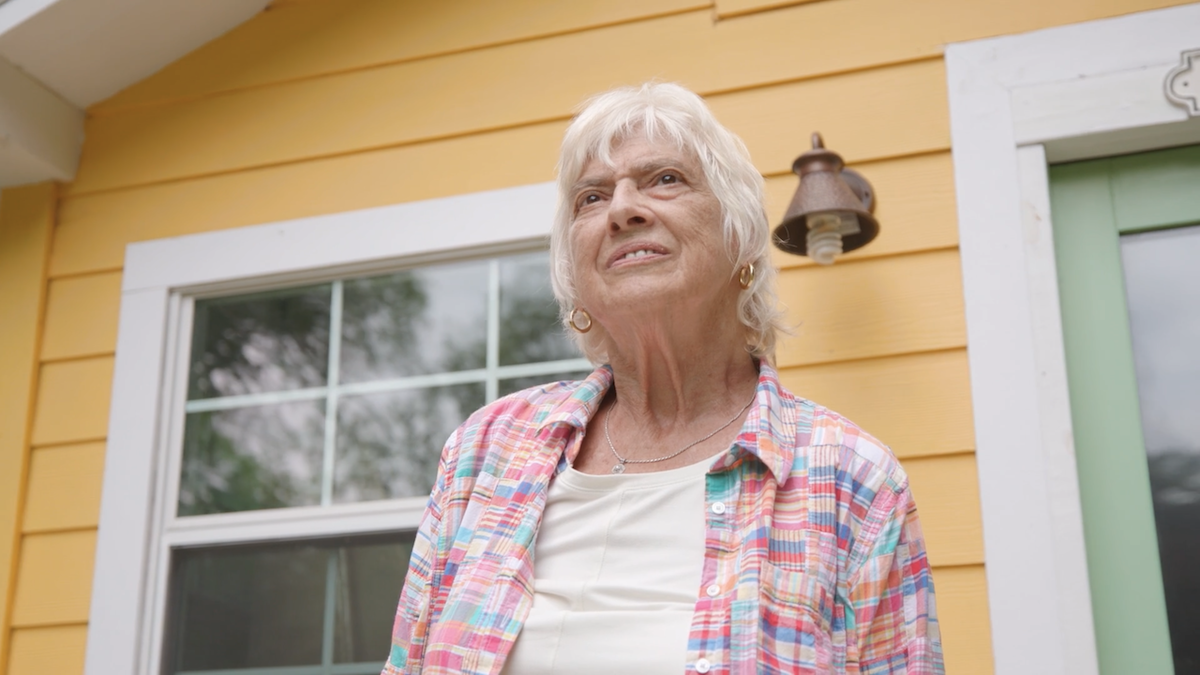When Camilla Augustine was a teenager, she began to feel a slight tremor in her hands.
“It was almost imperceptible,” she said. “They were very minor, and they didn’t really impede anything that I was trying to accomplish.”
While Camilla grew up, got married, raised two daughters, and eventually became the president of a business for 22 years, the tremors slowly intensified, mostly in her right hand.
“I wasn’t aware of the fact that it was something that was going to get worse over time, or I would’ve sought remedies sooner,” she said.
She visited doctors who tested her for Parkinson’s disease, but they ultimately diagnosed her with essential tremor – a neurological condition that causes involuntary and rhythmic shaking, usually in the arms, head or neck.
As the tremors got worse, Camilla, who’s now 74, slowly gave up hobbies like sewing and candle making and started doing things like gardening that didn’t require as much dexterity. Eventually, she gave up on her passions of drawing and painting as well.
In her professional life, she found it increasingly difficult to give presentations in front of an audience or even sign her name on a check or document.
She spent years working with a neurologist and taking medications to treat the tremors.
“The doses kept getting stronger and more often, and I didn’t really feel that there was a tremendous result,” Camilla said.
She even tried using alcohol to suppress her shaking – a common masking technique used by patients with similar conditions – but she didn’t want to make it a habit.
It reached a point where Camilla couldn’t take a drink from a glass or eat soup without making a mess.
Her neurologist referred her to Matthew Davis, MD, a functional neurosurgeon at Tallahassee Memorial HealthCare (TMH) who specializes in treating movement disorders like Parkinson’s disease, dystonia and essential tremor with a surgery known as Deep Brain Stimulation or DBS.
“Camilla had been using medical options available for her essential tremor, and it reached a point where they were no longer working,” Dr. Davis said. “She wasn’t able to do the things that she wanted to do, and it was profoundly impairing her quality of life.”
DBS is used to relieve symptoms of Parkinson’s disease, essential tremor, dystonia and epilepsy. The procedure is remarkably well-studied and has demonstrated excellent results with long-term effectiveness. DBS has been FDA approved for over 20 years, and over 100,000 people worldwide have received DBS therapy. Because it is FDA approved, DBS surgery is covered by most major health insurance plans as well as Medicare.
DBS for essential tremor works by delivering a continuous electrical circuit to a specific, tiny area of the patient’s brain where the tremor originates.
The surgery is done in two phases – the first with the patient being awake in the operating room. The scalp is numbed, and a small hole is made in the skull. Using a computer navigating system and a CT scan, a wire is passed into the brain with sub-millimeter accuracy.
The patient is kept awake during the surgery to monitor the immediate changes that happen in the operating room. Patients undergoing DBS are tasked with drawing a spiral and writing their name both before and after the wire is placed. Once the wire is in, there is an immediate reduction in the tremors, dramatically improving the patient’s ability to write.
In the second phase of the surgery, a battery, similar to a pacemaker battery, is placed under the skin in the chest. Together, the wire and the battery control the tremors.
Dr. Davis has performed 88 DBS surgeries since starting the Movement Disorders Program at TMH in 2020. TMH is the only hospital in the Big Bend bringing this life-improving technology to patients.
“This is a quality-of-life surgery,” Dr. Davis said. “You’re bringing back normal functionality and quality of life and that’s one of the most exciting things you can do.”
Camilla said she looked at other programs at other facilities before choosing TMH.
“I didn’t find any place that had as much experience as TMH and Dr. Davis,” she said.
When she first learned about the surgery, she was intimidated.
“I was scared to pieces,” she said, adding that she thought she was too old to have the procedure.
But she quickly learned that her age was not a barrier and that while she would be awake during the procedure, there wouldn’t be any pain involved because the skull and brain don’t have nerve endings.
“When I realized that people were having to cut my food for me and I was having to drink soup through a straw – I decided to give it a chance,” Camilla said.
She wants other patients with movement disorders to consider DBS for themselves.
“The advice I’d give to anyone is don’t wait; seek help now,” she said. “When I’m discussing DBS with anyone, I certainly would recommend that they go to TMH.”
Since having her surgery in October 2022, Camilla has seen a radical improvement in her quality of life, even in ways she didn’t expect.
“I’ve been more likely to put myself out there in social situations and meet people after the surgery,” she said.
She also enjoys volunteering at her church and spending time with her grandsons.
“All possibilities have opened up for things that I can try to do now – sew, knit, crochet, paint, draw – it’s endless. These are all things that one by one, I gave up when I had the tremors,” Camilla said. “I feel like I’ve gained many years back that I lost.”
Learn more about DBS and send questions to Tallahassee Memorial HealthCare’s neuro team.

